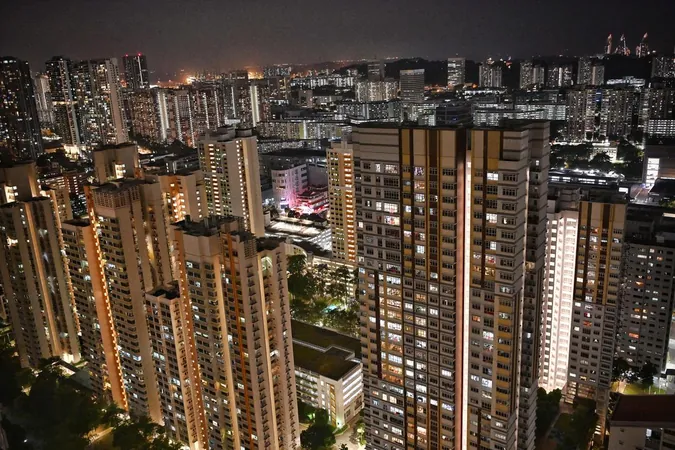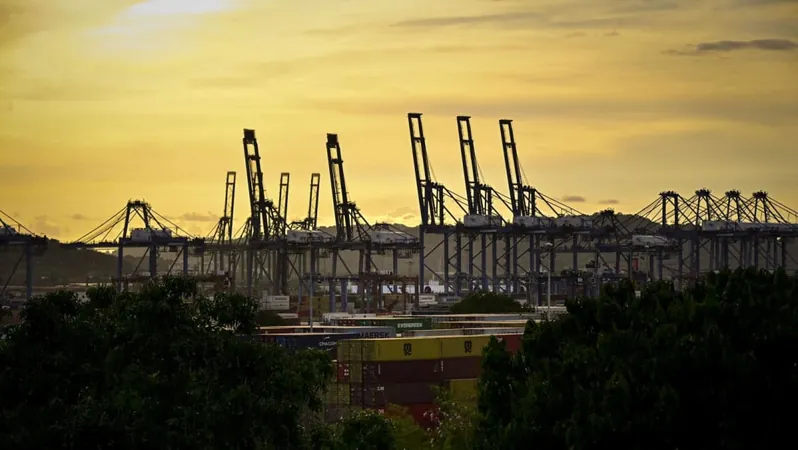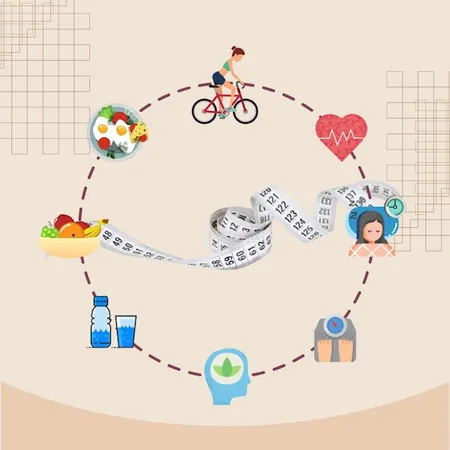
Singapore's Game-Changer: $1 Billion Hydrogen-Ready Power Plant Set for Jurong Island by 2029!
2025-01-04
Author: Mei
Introduction
In a remarkable stride towards sustainable energy, local electricity generator PacificLight Power has announced plans to construct a cutting-edge hydrogen-compatible natural gas power plant on Jurong Island, aiming for operational status by 2029. This ambitious project, boasting a hefty price tag of $1 billion, is set to be the largest and most efficient combined cycle gas turbine facility in Singapore.
Capacity and Features
With a phenomenal capacity of at least 600MW, this facility will be capable of generating enough energy to power over 864,000 four-room flats annually. What sets this plant apart is its ability to utilize at least 30% hydrogen alongside natural gas, paving the way for a more environmentally friendly energy generation process. Eventually, the plant is designed to transition to a full 100% hydrogen burning capability as Singapore strives for net-zero carbon emissions.
Contract Award and Strategic Plans
The Energy Market Authority (EMA) awarded the contract to PacificLight on January 3, amidst a backdrop of Singapore's strategic plan to establish a minimum of nine hydrogen-ready power plants by 2030. Notably, PacificLight’s initiative will lead the charge in this vision.
Battery Energy Storage System
A groundbreaking feature of PacificLight’s new facility is its integration with a large-scale battery energy storage system, aimed at storing electricity during low-demand periods. This technology will not only enhance operational efficiency but also contribute significantly to grid stability.
Growing Demand for Clean Energy
As the demand for cleaner and more sustainable energy sources intensifies, Singapore finds itself heavily reliant on natural gas for electricity generation. However, it is evident that the nation must pivot towards greener alternatives to meet ambitious climate goals. Hydrogen, heralded as a cleaner fuel compared to natural gas, emits no planet-warming carbon dioxide when combusted, making it a highly sought-after energy solution.
Projected Electricity Demand
In light of these developments, Singapore's electricity demand is projected to rise by at least 3.7% over the next six years, with peak demand expected to reach between 10.1GW and 11.8GW by 2030. The EMA has indicated that additional power generation capacity will be essential in 2029 to ensure the reliability of the electrical grid amidst this growth.
Industry Shift and Compliance
In a move that signals the industry’s shift, all new or revamped natural gas power plants since 2024 must comply with a 30% hydrogen-compatibility requirement. This initiative aims to standardize greener energy practices.
Other Players in Hydrogen Readiness
Other significant players in the hydrogen readiness movement include YTL PowerSeraya, which has embarked on constructing a $800 million plant that will be 50% hydrogen-compatible by 2027. Furthermore, several parties including Sembcorp and Meranti Power have five additional plants planned, with completion dates staggered between 2025 and 2030. Notably, Keppel is also joining the fray with the Keppel Sakra Cogen Plant, expected to be operational by mid-2026.
Environmental Concerns
Despite the urgency for these developments, there are concerns over environmental assessments associated with power plant sites. Recent criticisms have emerged regarding the adequacy of environmental impact assessments, particularly concerning endangered biodiversity.
Conclusion
As Singapore continues its journey towards a sustainable and hydrogen-centric energy future, the launch of PacificLight's hydrogen-ready power plant on Jurong Island represents a monumental leap forward. The nation is not just investing in its infrastructure, but also in a greener, more reliable energy future for generations to come.
Call to Action
Stay tuned as we follow this groundbreaking project and its impact on Singapore’s quest for sustainability!


 Brasil (PT)
Brasil (PT)
 Canada (EN)
Canada (EN)
 Chile (ES)
Chile (ES)
 Česko (CS)
Česko (CS)
 대한민국 (KO)
대한민국 (KO)
 España (ES)
España (ES)
 France (FR)
France (FR)
 Hong Kong (EN)
Hong Kong (EN)
 Italia (IT)
Italia (IT)
 日本 (JA)
日本 (JA)
 Magyarország (HU)
Magyarország (HU)
 Norge (NO)
Norge (NO)
 Polska (PL)
Polska (PL)
 Schweiz (DE)
Schweiz (DE)
 Singapore (EN)
Singapore (EN)
 Sverige (SV)
Sverige (SV)
 Suomi (FI)
Suomi (FI)
 Türkiye (TR)
Türkiye (TR)
 الإمارات العربية المتحدة (AR)
الإمارات العربية المتحدة (AR)